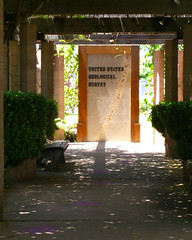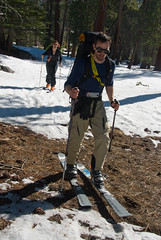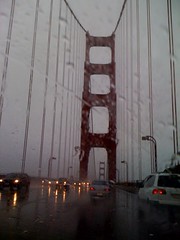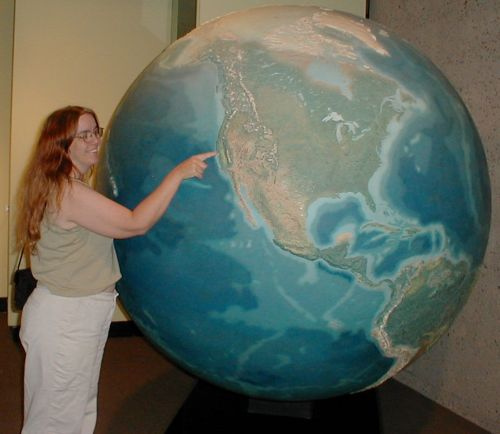Scientists measure fresh water loss down a moulin on the Greenland ice cap:
First thoughts:
1. Do we have data on melt from a decade ago? from the early 70s? How much has it changed? There had to be some surface melt back then, or the winter snow would be thickening the ice cap every year. I'm sure they know how and why it's worse and scarier now.
2. I'm not fond of heights to begin with, and of abysses in general. I couldn't have hung from those ropes.
3. I was a bit annoyed by Dr. Box saying, "It's just bottomless. No light escapes." Was there some sort of light source at the bottom of the hole that light should be escaping from? But I sort of get what he means, his choice of words just didn't work for me. It's so deep and narrow that it goes black immediately, and once you're down there, you're down in a deep black pit, ice water all around you, battered by ice on all sides, and you're going to die.
I'm one of those people who believe our climate is changing, and that most, but not all of that change, is human-caused. Humans can adapt, but I think we'll lose a lot of biodiversity, like
emperor penguins, polar bears (do I really need to link those stories?), and any plants and animals that already live at extremes of height or heat, whose habitats will change beyond their ability to adapt. In addition, animals that could move to adapt will be blocked by human change -- long, narrow reservoirs in Canada, cities and highways and farmland elsewhere in the world.
We can't stop it. We can slow it if everyone works together, but everyone isn't -- and not everyone can. But I think the winds are changing, and we'll get there. There will be certain losses, and certain sacrifices, but we're finally hitting the brakes a bit, and we'll get there.
I'm a little glad for Greenland in the short term. They had some decades of being
green a millennium ago, with dairies and farms. I hope they can make use of climate change to help themselves, for the time being.









